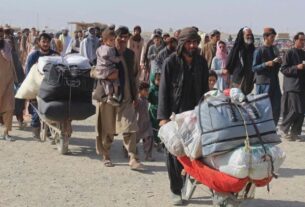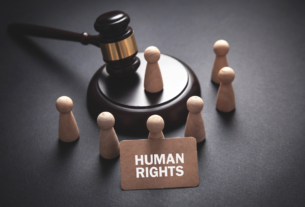A new book titled Saints and Liars by Debórah Dwork highlights the difficult decisions made by American aid workers who risked everything to help Jewish refugees escape Nazi-occupied Europe. These individuals, facing constant danger, had to choose which lives to save, knowing many more would perish in the process. The book sheds light on their efforts in five key cities during the Holocaust, telling stories of courage, sacrifice, and the moral dilemmas they faced.
The book explores the lives of people like Waitstill and Martha Sharp, a married couple sent by their church to help refugees in Czechoslovakia. Despite the growing danger, the Sharps remained in the country, engaging in illegal activities to save lives. The couple’s story begins in Prague in 1939, before the war started, when refugees were fleeing after the Nazis took the Sudetenland region. The Sharps’ mission was initially to provide aid, but it quickly shifted to rescuing people from inevitable deaths.
In an interview at the UN ahead of the International Day of Commemoration for Holocaust victims, Dwork explained the title of her book. She described the aid workers as “saints and liars” because, while they performed miraculous acts of kindness, they often had to lie, break laws, and bend the truth to help people. Their goal was clear: save as many lives as possible, even if it meant taking significant personal risks.
Dwork explained that these individuals faced constant danger. The Sharps, for example, were involved in illegal currency transactions to fund their rescue efforts. If the Nazis had caught wind of their activities, the consequences would have been dire, including imprisonment or torture. These risks were not just a part of their work but an essential part of their survival and ability to save lives.
The book also discusses the fate of Jewish refugees who fled to Shanghai. Before the war, Jews from Nazi-occupied countries sought refuge there because no visa was required. By 1939, about 20,000 refugees had gathered in the city, which was under Japanese control. Laura Margolis, an American aid worker, was sent to Shanghai to help them relocate to other safe destinations. But when the war intensified, she found herself stranded in the city, struggling to provide basic needs like food, shelter, and medical care for the refugees.
The aid workers often faced emotional turmoil as they had to decide who would get help and who would not. Dwork pointed out the moral challenges of choosing who to prioritize when so many people needed help. The Unitarians, for instance, focused on rescuing individuals who could help rebuild democratic governments after the war. In contrast, the Quakers did not have such criteria for helping anyone who needed assistance, regardless of their background or future contributions.
The unpredictable nature of the situation shaped these decisions. Dwork emphasized the role of luck, timing, and chance in these rescue efforts. “Sometimes things happened by accident,” she said, noting that while some rescues were planned, others resulted from fortuitous circumstances. The aid workers had to rely on these moments of luck and make the most of every opportunity to save lives.
The book Saints and Liars reminds us of the courage and sacrifice of those who risked their lives to help others during one of history’s darkest periods. The stories of these aid workers offer valuable lessons on moral decision-making, the importance of action in the face of adversity, and the unpredictable nature of history.




